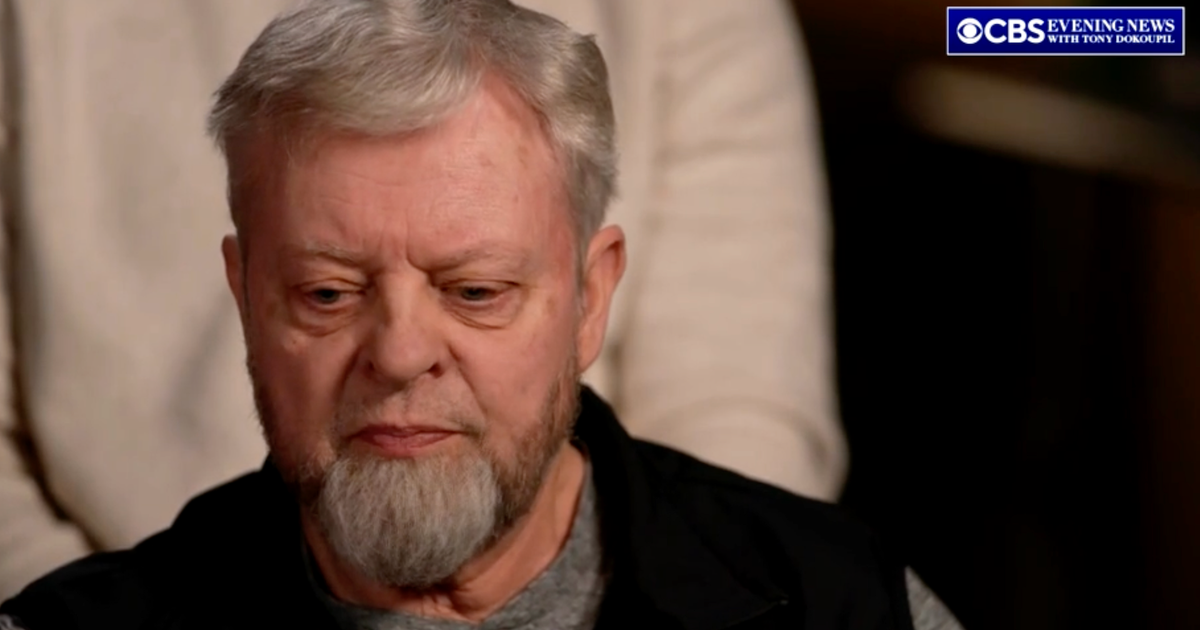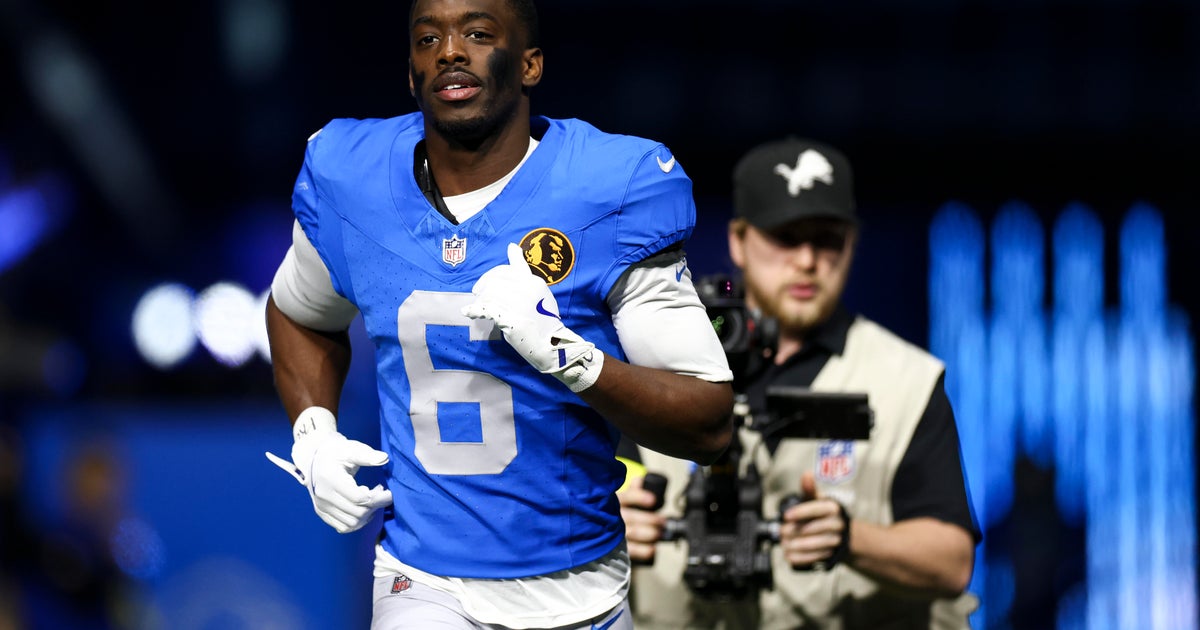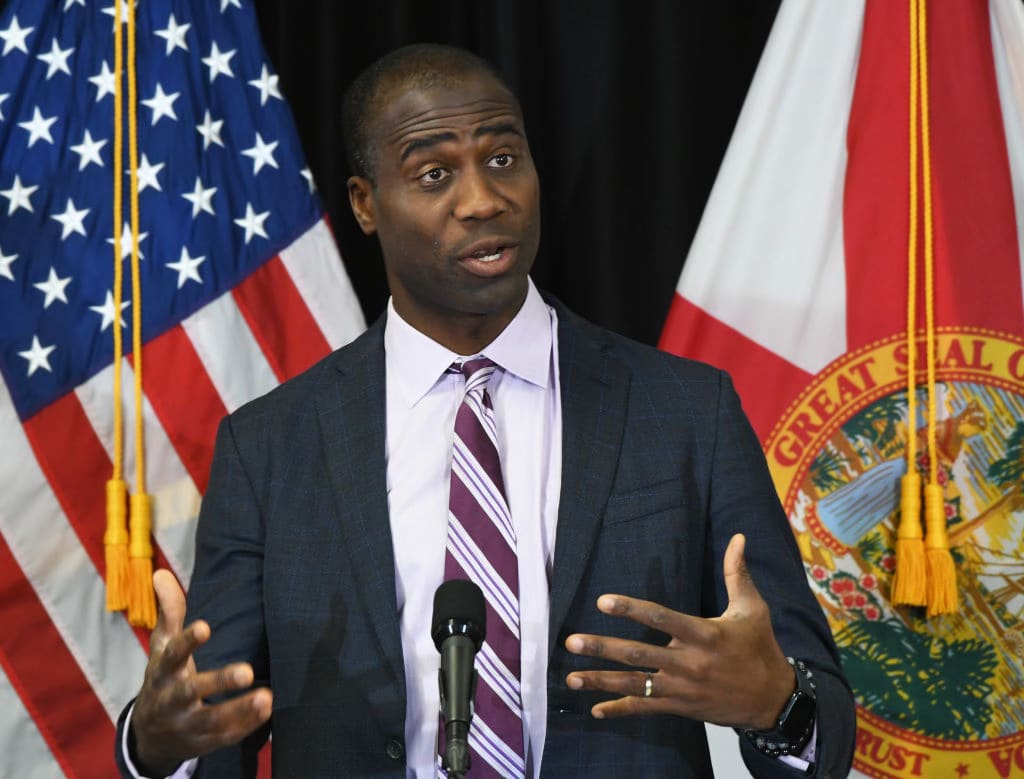Florida gig worker says he spends hours each day trying to reach state's unemployment office
Richard DeBlasio, a 46-year-old who drives full-time for Uber in Saint Cloud, Florida, is among the millions of U.S. gig workers seeking unemployment assistance amid the coronavirus pandemic. He has yet to receive a cent, encountering an outdated and overwhelmed state unemployment system riddled with technical issues and contradictory directives. His wife, Jessica, 42, is a paralegal seeking answers on her husband's behalf, often calling unemployment repeatedly from an adjacent room.
The DeBlasios, who have a 15-year-old son and 25-year-old daughter, spoke with the "CBS Evening News" about their financial challenges and exasperation with the state. The interview has been edited for length and clarity.
The DeBlasios first shared their story by texting Norah O'Donnell. We would like to hear from you, too: text (212) 217-1107.
CBS Evening News: Tell us about the circumstances in which you find yourself. You made a decision to stop working and seek unemployment?
Richard DeBlasio: In mid-March, I was still driving full-time for Uber as COVID-19 was starting to become a reality. It became a concern to me because I have some pre-existing conditions — I'm a Type 2 diabetic. When I contacted my doctor, he advised me that I should consider stopping Uber and move forward from there. It was around the time when our governor put a mandatory stay-at-home order in place. Uber "partners" (the term the ride-share company uses for its drivers) were still able to work, but it wasn't advisable if you had any preexisting conditions. A week later, they announced unemployment was going to be available for gig workers and independent contractors, like myself. The president signed the CARES Act on March 27, and I was lucky enough to get through and apply for unemployment that day. It sat in pending status for five and a half weeks before I received a denial. I must have spent six to eight hours, days in a row, trying to get anyone on the phone. It was just the same repetitious "we're unavailable, we can't take any calls." That's when the nightmare really started to begin.
CBS Evening News: What are the next steps after state unemployment deems you ineligible?
Richard DeBlasio: Well, we were told that if you applied for any type of unemployment benefits in the state of Florida before April 4, you now have to reapply because the system is so old and backed up. So you have to start that process all over again.
Jessica DeBlasio: It's our understanding that you need to get a denial from the state in order to get a link to the [federal Pandemic Unemployment Assistance, or PUA] application. And then you apply for that, and wait for approval on that. By the time this all comes to fruition, we're just afraid that the eligibility of benefits is going to be over.
CBS Evening News: Did Florida unemployment relay clear directives for gig workers or independent contractors, or designate a specific program? This seems really hazy to follow.
Richard DeBlasio: No, we've done a lot of Googling for information. Initially, when you'd call the 800-number at the end of March, you'd get a recorded message: "Nobody is available to take your call." Or you'd get a message that the line was too large and "we're not accepting any calls at this point." I had an alternate number that I found that linked me to Florida unemployment — and the person that answered after several days of trying said, "How did you get this phone number?" And I said, "Google, it just came up." The next day, that number was gone. And, of course, that person gave me no information.
CBS Evening News: So, all of these calls have been simply to determine eligibility, for both your first and second applications?
Richard DeBlasio: Yes, and it continues to be very frustrating. For the first application, it was very hard getting an answer of "you're ineligible." Well, how come I was ineligible? I fell in line just like workers out there who are in the same business. I spent nine and a half hours one day, calling and calling and calling. [Florida Governor Ron DeSantis] had advised that there was a new number set up for information — to provide an additional form of contact because the system is so overwhelmed. When you call that number, it gives you the same recording that the original unemployment number gives you. "We're sorry, we're not taking any calls." I spent hours on the phone for five or six days in a row and then just got so frustrated that I gave up, waited a day and went back and tried again. I continue to try every day.
CBS Evening News: How much were you earning weekly when driving for Uber? What has the revenue loss been like for the household?
Richard DeBlasio: It was between $500-800 a week working in Central Florida, the amusement park area, prior to all this.
Jessica DeBlasio: It's a pretty large loss.
Richard DeBlasio: Especially if you multiply that times 52. It becomes a significant amount.
CBS Evening News: Gig workers comprise 22% of the Florida workforce — the highest proportion in the country, according to a February study by ADP Research Institute. Do you feel left behind?
Richard DeBlasio: I pay my taxes just like everybody else does, you know. What makes independent contractors and gig workers different from anybody else? So, when I hear W-2 employees are starting to receive benefits, we're asking for the same: for the state unemployment system to process our applications so we can be forwarded to the federal system and get the assistance that was created for us. We're trying to survive this just like everybody else. Our state is ranked 50th out of 50 states for the worst unemployment system. [An Associated Press analysis of federal data found Florida ranked at or near the bottom of all states in its speed of processing unemployment claims.] It's very hard to hear when you're in that number. It makes you feel hopeless.
Jessica DeBlasio: I've gotten to the point where I've been reaching out to law firms, trying to find somebody to help. There's a particular firm in Tallahassee that's handling a class action against the state right now. They have about 4,000 cases. You can't even get through to them. I've been trying for two weeks now and it's just busy signal after busy signal — there's just no hope.
CBS Evening News: Have you received any support from Uber corporate?
Richard DeBlasio: That's a sore subject. Listen, I love Uber, but I don't believe in all of their practices. I don't think they take care of their partners as they should. We're the face of the company — the ones on the frontlines. And I think they've done exactly what the state of Florida has done with the unemployment system for independent contractors: they dropped the ball.
Jessica DeBlasio: He reached out to Uber at the very beginning and asked, "Is there any way you could assist your drivers with resources?" Resources to stay healthy, resources to keep your car clean. They said absolutely not. They "didn't have the ability to do that."
CBS Evening News: Jessica, you're working full time from home as a paralegal. What has it been like attempting to navigate this process with Richard while also managing your own professional responsibilities?
Jessica DeBlasio: It's exhausting. It's like two full-time jobs in one. He's on the phone in one room, I'm on the phone in the other room. I check his status, and then he checks his status. 90% of the time when you even try to log on to check status, it throws you off.
We don't know when the economy's going to be back, we don't know when Richard will be back to work. It's the unknown. And carrying a full-time job and taking care of a family and taking on stress of the finances...it's a lot to bear. One of my bigger concerns is we can't even ask for governmental help — it's a double-edged sword. Thank God I have a paycheck, which covers the basics, but in the same respect, it hurts me — I can't apply for Medicaid, I can't apply for food stamps, I can't apply for any help because I have a paycheck that's a certain amount of money. It's that middle class situation where you're damned if you do and damned if you don't. I mean, we're stuck. We're stuck.
CBS Evening News: Health risks aside, what would happen if you attempted to resume work, Richard?
Richard DeBlasio: I mean, the work's not there. I can turn my app on — and I've done it just to test it out — and I can drive around hours in my city, and if it goes off one time, that's a lot. I never knew how busy the Uber system was until I moved to Central Florida. From 6 a.m. to 2 a.m., it was nonstop. Now—
Jessica DeBlasio: It has crashed and burned.
CBS Evening News: What is weighing most heavily on you?
Jessica DeBlasio: The biggest weight bearing right now is: What's going to happen on June 15 if unemployment doesn't come through? What if the extra money is gone? What are we going to have to sacrifice next to put food on the table?
CBS Evening News: What have you been doing to conserve resources?
Jessica DeBlasio: We got part of our stimulus. We didn't get the full thing. I've literally piecemealed it — "okay, we can take $200 for this week and this is what we have." And I've done it week by week, just stretching things as far as we possibly can. We're cooking every night and being frugal at the grocery store, but we also have a 15-year-old who eats like two full grown men, so he's very expensive to feed.
Richard DeBlasio: You're trying not to overbuy but, at the same time, grocery stores are running out of essential items.
Jessica DeBlasio: I reached out to my auto loan carrier to ask for a two-month deferment. But once that two months is up, then what? It's been extremely challenging. It's like you go to bed in one world and you wake up in a completely different one ... it's like the Twilight Zone. We've been together since middle school, almost 30 years, and I think this is the most challenging time we've been through in 30 years.
CBS Evening News: How is your son doing? Is he aware of the financial strain?
Jessica DeBlasio: He's a nervous wreck.
Richard DeBlasio: He's 15. It's not like he's 5 and you can hide it. He asked me yesterday, "Are we bankrupt yet?" and I was like, "Why would you say that?" He goes, "That's what all these big companies are doing, and you're not working and you work for a big company."
CBS Evening News: Where do you see yourselves June 1? What would you need in order to continue paying some of your bills?
Richard DeBlasio: If I start thinking about the next month, it scares me.
Jessica DeBlasio: If there's no change and nothing comes in for us, I really don't know. I guess we'd have to reach out and ask family to help at some point.
CBS Evening News: What's your message for Florida's leaders?
Jessica DeBlasio: The Band-Aid needs to be ripped off. There needs to be a realization that this is a problem for a lot of families who are going to be in detrimental situations the next month or two if it's not fixed. It shouldn't take 12 weeks for someone to start receiving any type of benefit from the state for unemployment when it's not the person's choice to be out of work. We need help. We desperately need help. And it needs to be prioritized. I mean, enough is enough.
Video edited by Josh Carney




